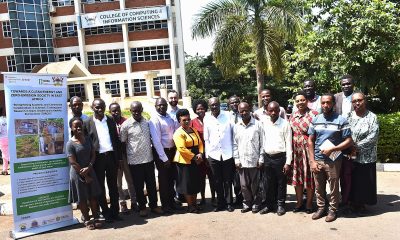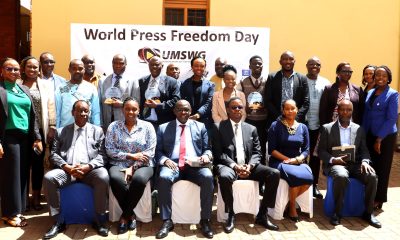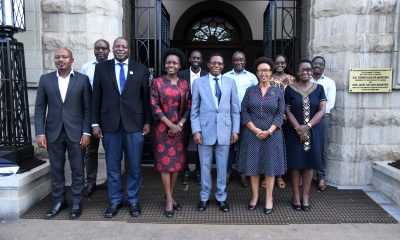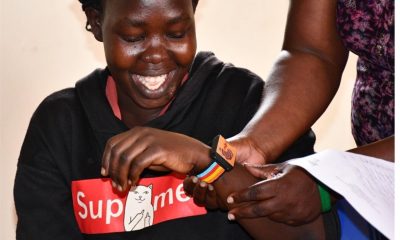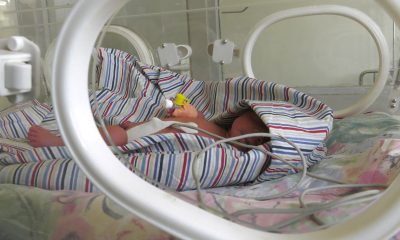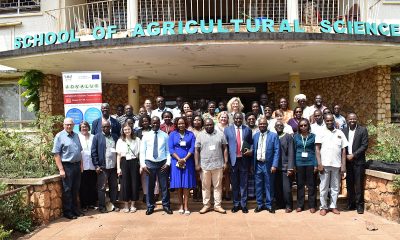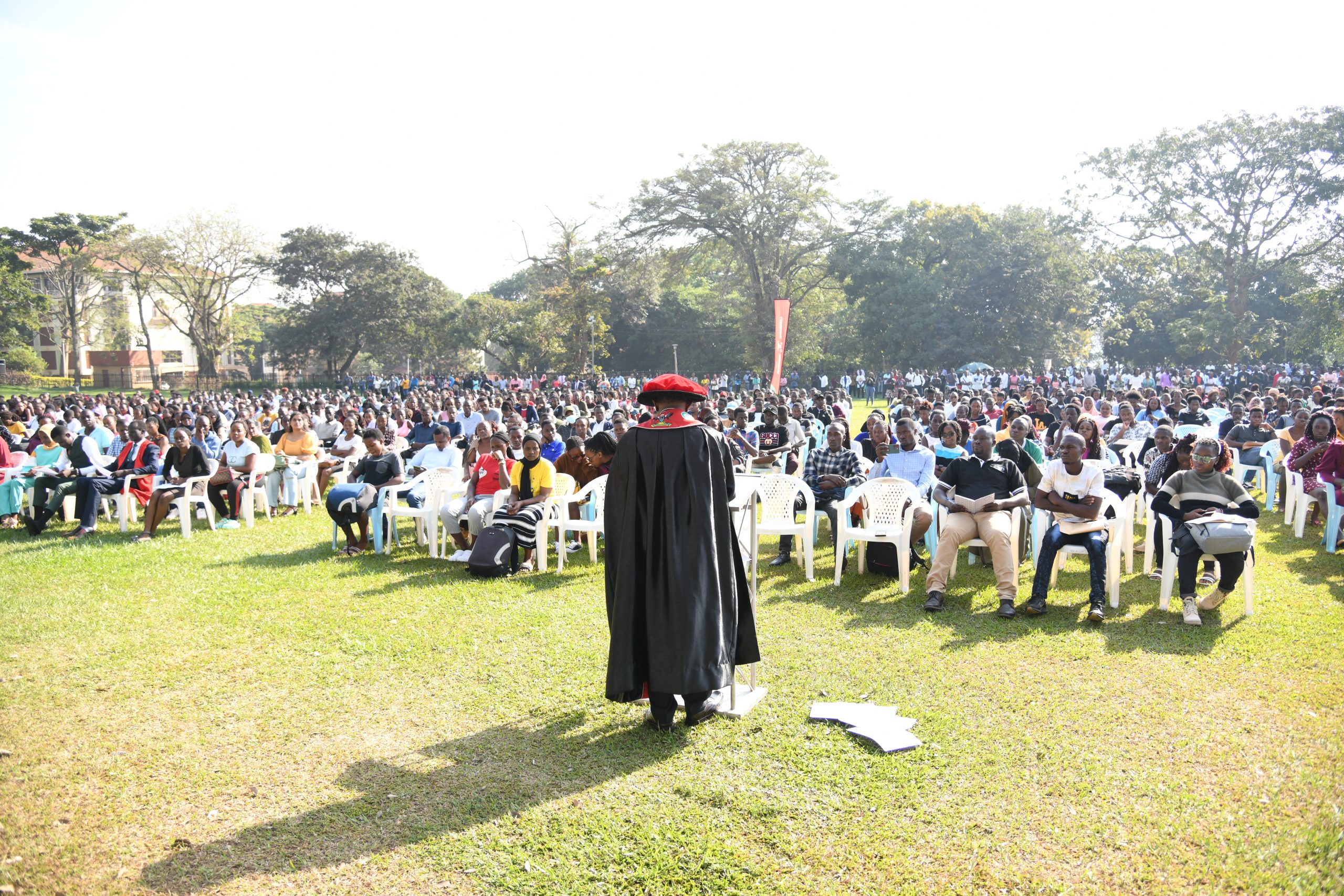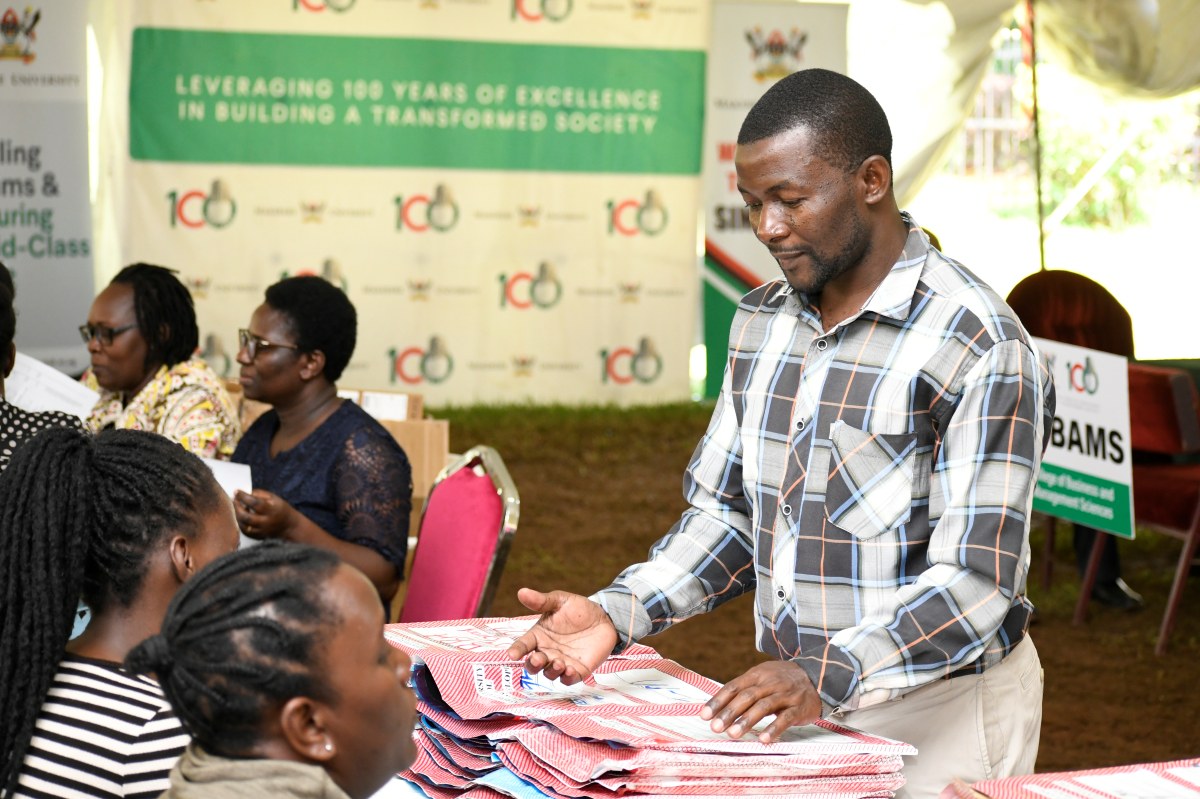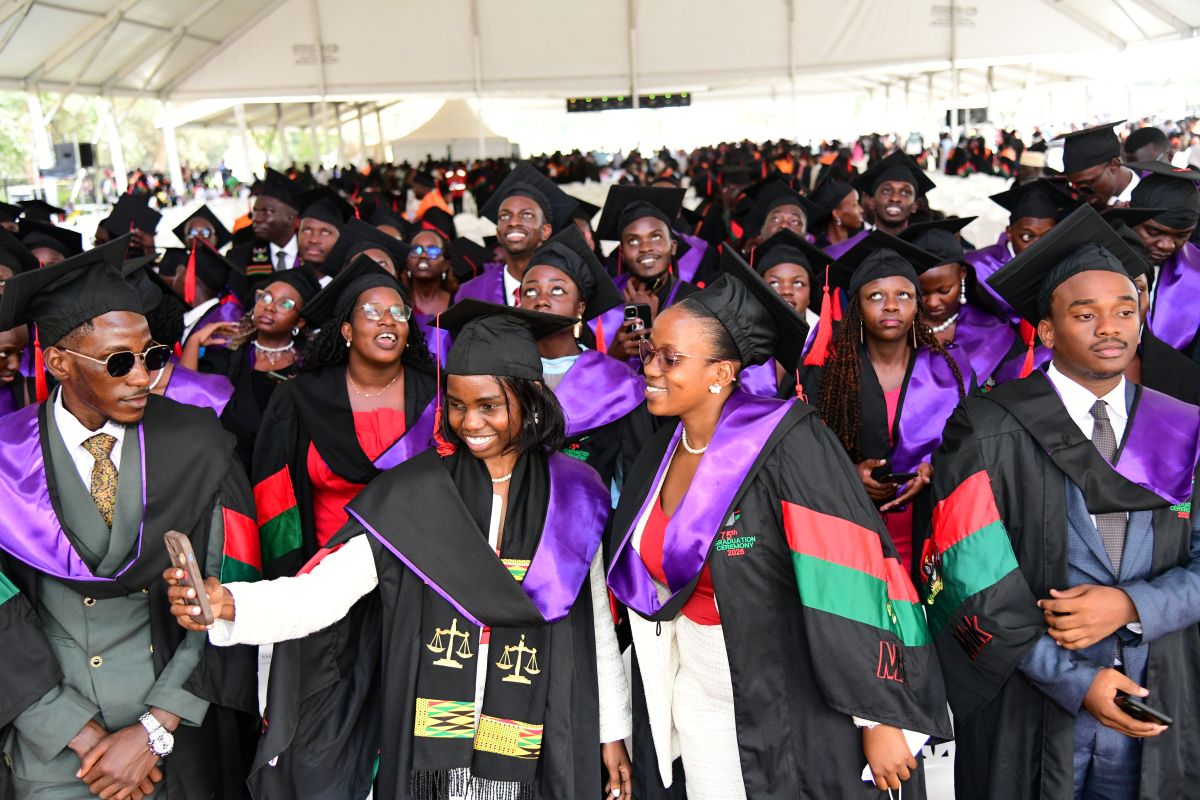1. Background
Africa is a continent of opportunity, with the youngest population on the planet. While ‘talent is equally distributed opportunity is not’. In sub-Saharan Africa, the gross enrolment ratio in higher education reached only 9% in 2020 (compared to 40% worldwide), and the gender parity index showed that 70 women for every 100 men participated in higher education.
Regarding knowledge production, Africa invests 0.6-0.9% of GDP on research and development, compared to a world average of 1.93%, and generates less than 1% of the world’s research. Doctoral education has received lower priority in Africa, given the attention to the undergraduate level: an unbalance that plays against the significant interdependence between these levels. In addition, relevant studies (British Council and DAAD, 2018) have highlighted low or inconsistent PhD capacity despite the significant expansion in master’s level graduations – an issue related to funding capacity and lack of mechanisms to assess the quality and socio-economic relevance of PhD outputs, among others. Moreover, Africa ’faces a huge digital skills gap, which is diluting economic opportunities and development. Some 230 million jobs across the continent will require some level of digital skills by 2030’ (World Bank, 2020).
As in other regions, academic mobility is increasing in the continent and thus recognition systems need to be enhanced or established. However, robust quality assurance mechanisms and agencies, which are key to upholding academic standards, do not exist in some countries. To engage firmly in a sustainable development path, Africa needs more inventors, innovators, scientists, technologists, academics, and researchers. For this to happen, Africa requires adequately resourced and academically excellent universities and higher technical institutions that train, research and innovate; companies that are entrepreneurial and investing in research and development; incubators that can nurture new technologies and partnerships and venture capital networks that can sponsor these initiatives.
Equally important is the elaboration of sound policies and strategies for strengthening higher education systems, based on reliable data and information. According to an initial needs assessment and mapping conducted by UNESCO, there have been many efforts to increase production and dissemination of data on tertiary education in and for Africa. Yet, internationally comparable information remains limited and data collection across Africa is weak. Hence, there is a great need to improve the quality, coverage, and frequency of data collection and strengthen capacities for data analysis to adequately inform education policy discussions and decisions.
Elaborated as one of the five flagship programmes of UNESCO Operational Strategy for Priority Africa 2022-2029), the overall objective of the Campus Africa Flagship Programme is to build integrated, inclusive, and quality tertiary education systems and institutions, for the development of inclusive and equitable societies in the Continent. The Programme is implemented along three interrelated main lines of action (MLAs) through which UNESCO jointly with its partners will strengthen and enhance equity and quality of higher education systems, connect Africa’s tertiary education systems, institutions, researchers, and communities, and promote mobility and employability of higher education students.
Campus Africa activities will promote all SDGs and more specifically SDG 4, 8 and 9. In particular, synergies are to be sought with United Nations agencies, the United Nations Sustainable Development Cooperation Frameworks (UNSDCF) and development partners’ initiatives supporting SDG 4.3 – by 2030 ensure equal access for all women and men to affordable quality technical, vocational, and tertiary education, including university.
2. Objectives of the Mapping Research and Doctoral Programmes in HEI in Eastern Africa
To achieve the Campus Africa objective, UNESCO is working with its networks and partners to pool expertise and resources and ensure synergies in action and sustainable impact. To this end, UNESCO is collaborating with the Makerere University within the framework of the Campus Africa flagship with the objective to propose relevant operational initiatives, which address challenges of access and quality of higher education in Africa, with a focus on Eastern Africa. More specifically, work shall be conducted in relation to Campus Africa Main Line of Action (MLA) 1 on improving the research capacity of African tertiary institutions and increasing research outcomes with effective networking through Workstream 1.1 which focuses on enhancing inter-university collaboration in Africa by facilitating the development of collaborative research and doctoral programmes that prioritize interdisciplinary work and focus on SDGs-related issues; and through Workstream 1.2 which focuses on support and strengthening of mechanisms that facilitate the exchange of students and professors and investment in joint research programmes and publication, and provides for access to research grants, scholarships and fellowships that give due attention to girls and women applicants, as well as to applicants from marginalised population groups.
This assignment therefore is to map and assess opportunities and challenges for enhancing research and doctoral programmes in higher education in Eastern Africa. The mapping report should analyze capacity gaps and highlight existing successful efforts, including inter-university collaboration and joint research and doctoral programmes, statistics on fellowships/scholarships, various funding mechanisms, and other initiatives across Africa as relevant.
The mapping study is to have an inclusive approach, with gender, country, and regional balance where relevant – with a focus on Eastern Africa. It should target perspectives from stakeholders of higher education in Eastern Africa, in particular, from governments (ministries responsible for higher and tertiary education), higher education institutions, development partners, quality assurance council/agencies, NGOs, funding agencies, private sector associations and employers, and relevant institutions, including UNITWIN/UNESCO Chairs, as well as students and graduates, as related to the content of the work.
3. Scope of the study
The scope of study will include the following:
- Conduct a mapping study to generate information on existing efforts and enablers, opportunities, and challenges to enhance research and doctoral programmes in higher education in Africa, with a focus on Eastern Africa
- Integrate perspectives of key stakeholders of higher education across Africa, particularly in Eastern Africa, to complement the mapping study
- Develop recommendations to enhance the research capacity of African tertiary institutions and increase research outcomes with effective networking, upholding the principles of inclusiveness, relevance and gender equality
The study team/individual is expected to propose the best approaches for undertaking this mapping study. The proposal should detail the study objectives and methodology proposed and all the costs associated with conducting the study.
4. Key Deliverables
The key deliverables will include:
- Inception report: detailing the methodology including the main research methods, the sampling framework, proposed sources of data, and procedures for data collection and analysis. The proposed research tools will be discussed by the UNESCO Campus Africa/CFIT III Makerere Team before study commences.
- Revised first Draft Final Report, incorporating suggestions and recommendations from a reference group. A second round of revision may be required before the final version of the Final Report can be produced.
- A final report (one electronic copy in PDF Format and one in WORD format) with key findings and recommendations.
- An electronic copy of all data collection tools and the mapping study data set
- A final presentation of the overall findings to stakeholders for validation
5. Duration of the study
The final report of the analytical study is due by Wednesday 11 October 2023. The duty station is Makerere University as it is expected that capacity for such studies is available.
6. Qualifications and Expertise
- Post-graduate degree and demonstrable experience in conducting mapping studies – particularly in the context of research and graduate training
- Good knowledge of Eastern Africa’s higher education sector and relevant institutional frameworks
- Ability to interpret results and provide practical recommendations
- A good understanding of English language with excellent communication and report writing skills
7. How to Apply
Study teams or individuals interested in this opportunity should provide the following:
- A technical proposal with detailed response to these terms of reference, with specific focus on the scope of work, methodology to be used and draft list of key stakeholders to be engaged
- Initial high level work plan based on an outlined methodology and indication of availability to undertake the tasks within the specified timeframe
- A financial proposal including a detailed budget breakdown for the different tasks in each specified work package
Applications should be sent via email to cedat.soe@mak.ac.ug by Monday 28 August 2023.
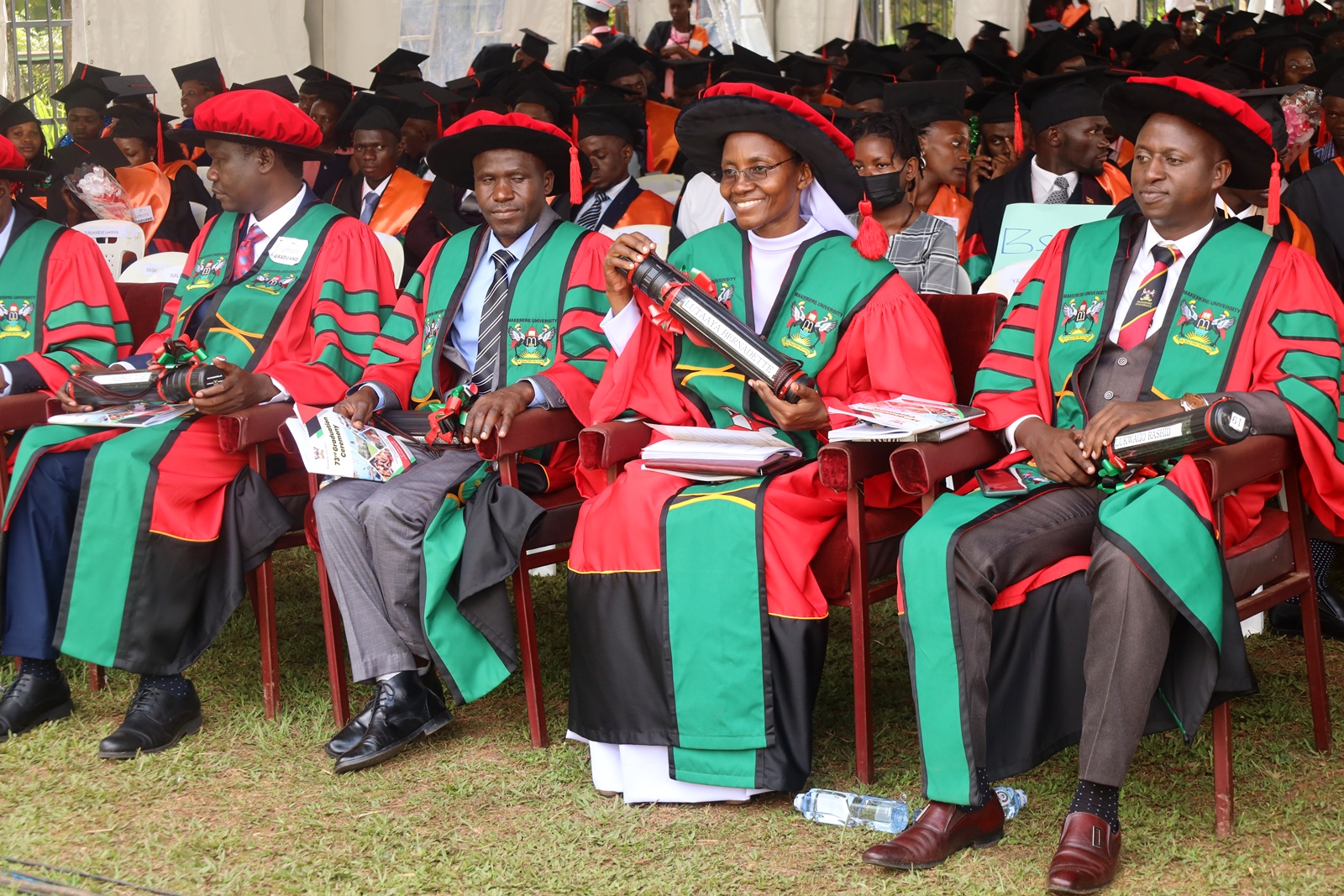

 General6 days ago
General6 days ago
 General1 week ago
General1 week ago
 General2 days ago
General2 days ago
 General2 weeks ago
General2 weeks ago
 General1 week ago
General1 week ago
